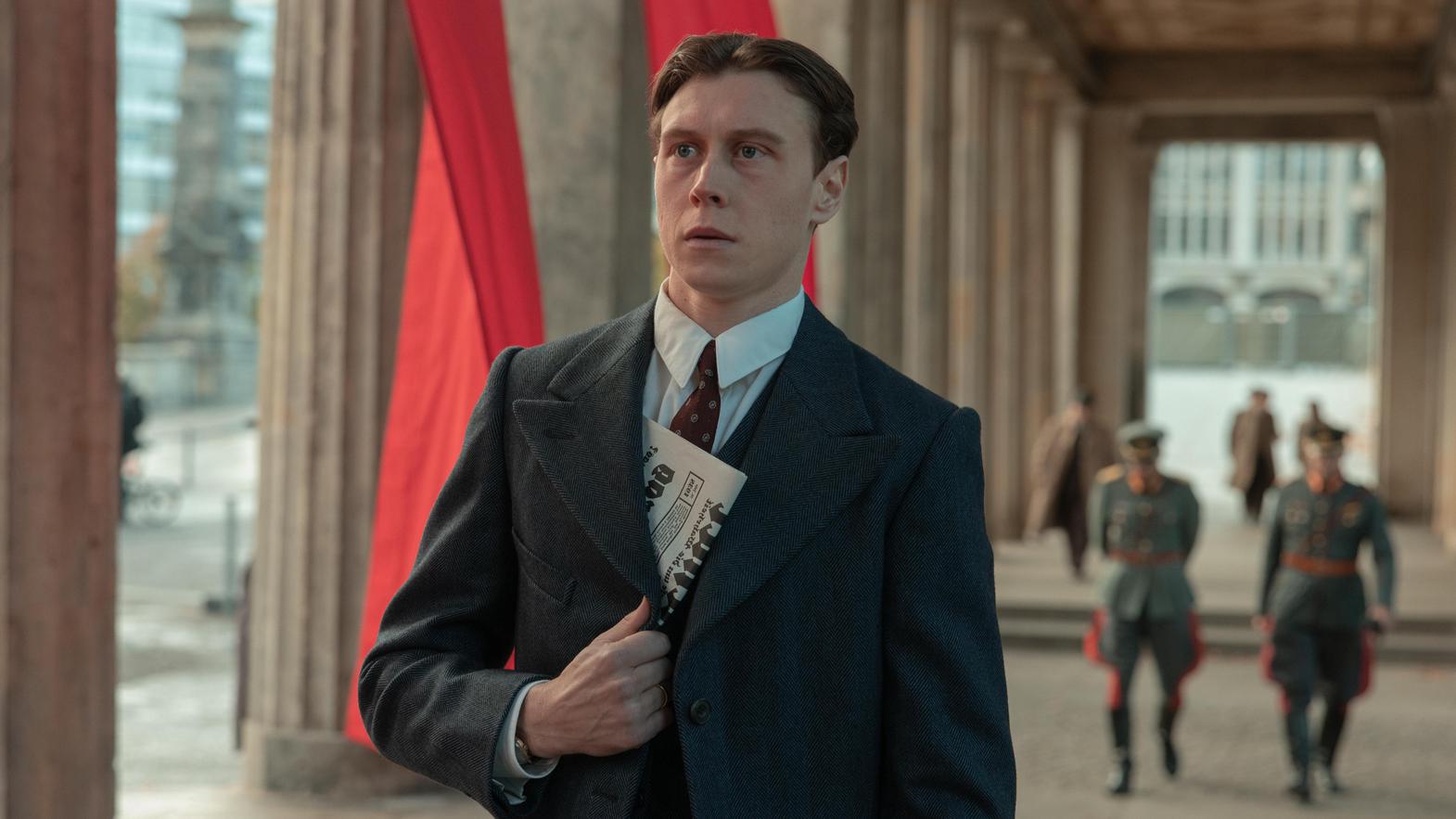Is Munich The Edge of War True and Is It Worth Watching?? Let’s get you the answer you are looking for right away… NO. Munich: The Edge of War is not a true story. But to learn exactly which details were true, and which items were not true, you’re going to need to read on. The second question? Is Munich: The Edge of War worth watching? YES! It’s a fantastic movie that generally hugs reality loosely, and will teach the viewer a lot, while not being boring at all. Quite the contrary… Munich: The Edge of War is a fantastic nail-biter… especially since it’s just a movie about diplomacy, at the end of the day!
I would have majored in History if I had thought I could have figured out how to make money using my History degree in any way other than as a History professor. No one would have signed up for my History courses. Literally, in no universe, would they have. But, I basically minored in History because I enjoyed it so much. All that to say, Munich: The Edge of War is magical from an extraordinarily important moment in history standpoint. But I have to admit, this movie seems like a tough sell to normal movie goers. “You want me to watch a movie about … diplomacy? eh? Are you on something mate?” But that is literally what we are watching here with this movie. And it’s riveting all the same. Which is why you need to watch it.
The Story of Munich: The Edge of War
If you know nothing about history… there were two big wars. Cough. The Great War. And World War II, the greater war. The Great War did a lot to cause the Greater War… literally, not metaphorically. One of those things was the creation of Adolph Hitler. Another one of those things was the creation of Neville Chamberlain. Hitler was a reaction to the horrific way the country was treated after the Great War, and their loss of esteem and sovereignty (and huge reparations that sank the German economy). (Oh, and throw in a ton of just racist tripe Third Reich bulls@#$@ in here somewhere for good measure.) Adolf got pissy about that, and responded by pushing for “liebestraum” – living space. CHAMBERLAIN, in response to his own perspective about how diplomacy failed the world going into the Great War, decided to work harder to protect millions, and millions, and millions, of humans from dying again… all needlessly.
Which brings us to the movie.
One of the most curious individuals in and around the Great War Sequel is the person of Neville Chamberlain. No individual has been laughed at, and ridiculed more, than this poor fellow. But the movie does a good job to give him flesh and bones, and provide him a reason for his failings. Whether you agree with the sympathetic approach to this individual is really neither here nor there. But it does help to consider his history, his own experiences, and the chaos that he had lived through during the Great War. Now, to set this story up simply, and reduce the ambiguity of it all, the writer and director crafted two friends to push the question. Hugh and Paul (played by George McKay and Jannis Niewöhner respectively), are two fictional characters who were developed in order to show the complexities involved here and to press the question to Chamberlain unambiguously. The story ultimately culminates with Hugh and Paul reuniting at the very true to life Munich Conference where Chamberlain literally handed Hitler the Sudetenland, and the Czechoslovakia soon after, as long as Hitler “promised” (I kid you not – you can’t make this stuff up) to not go any further. Obviously this was a massive failure on the appeasement front. Worse, in the year between the signing of the agreement, and the outbreak of war, Britain didn’t prepare for the coming war and were caught fairly flatfooted.

The problem with history is that it’s a literal exercise in Monday morning quarterbacking. We know that Chamberlain’s gambit failed. Actually, his gamesmanship at the Munich Conference called Hitler’s bluff, and embarrassed him at home by denying him the war that he so desperately wanted. (Which was missed in the movie. So kudos there Chamberlain. Minus the fact that Chamberlain declared his life’s work ruined when Hitler started the war in Poland… and about a year later, Chamberlain died. So yeah. About that.) But, in movie form, that clarity is hard to elucidate accurately. Like, at all. Why? Because current (as opposed to History… aka, that is history, this is current, that is future, stick with me here.) is vague and really unknown. Which, is why they needed to invent Paul and Hugh… so through the device of these two friends they are able to push the very fictional question to Chamberlain – HITLER IS GOING TO WAR, MAN! WHAT ARE YOU THINKING?!?! Chamberlain’s response? This is nonsense. Why? Because he never had any sort of intel or indication that Hitler wanted anything more than the return of the Germans “trapped” in Sudetenland.
While it is true that in 1933, after Hitler was instated as the Chancellor of Germany, the military was leery of the man. But both the military and Hitler wanted the same thing – the renunciation of the Treaty of Versailles, and also to expand the German armed forces. In 1934, the Nazi Party leadership murdered the leadership of the SA (the Storm Troopers, the Nazi Party paramilitary formation, during the ‘Night of the Long Knives’) and with that they cleared the opponents between Hitler’s Nazi regime and the coordination with the military. As a result, the military would be in lock step with Hitler until the end of the second Great War. I mean, it was soon after this that the military leaders swore a new oath to Hitler personally… as the personification of the German Nation. So this story of the military being on the edge of a coup attempt? I literally have no idea where this myth is coming from. But this fiction helps to clarify Chamberlain’s failed position more clearly. It helped though, for a viewing audience that isn’t well versed in the politics and realities of the day, to simply and easily clarify what is going on here.
Final Thoughts on Munich: The Edge of War
Diplomacy as a riveting movie? Are you kidding me? No, of course, it wouldn’t work. Which is exactly why this melange of spies, secret documents, and intel being squirreled over to Chamberlain was necessary. We are not only worried about Paul and Hugh, and what would obviously happen to them both if they were caught. Never mind the tragic foreshadowing of what happened to Lenya and the crushing doom falling on the Jews in Germany. It all is assembled in the film to clarify what was at stake for Chamberlain there in Munich. I loved the movie. It was brilliant in its execution and insightfulness, even if it was large parts fiction and myth.
You were interested in this post, “Is Munich The Edge of War True and Is It Worth Watching??” so I’m betting you’d also be interested in other movies like this one. If so, the 12th Man. Is it similar? No. Will you love it? Yes. I promise you. You will.
Edited by: CY

